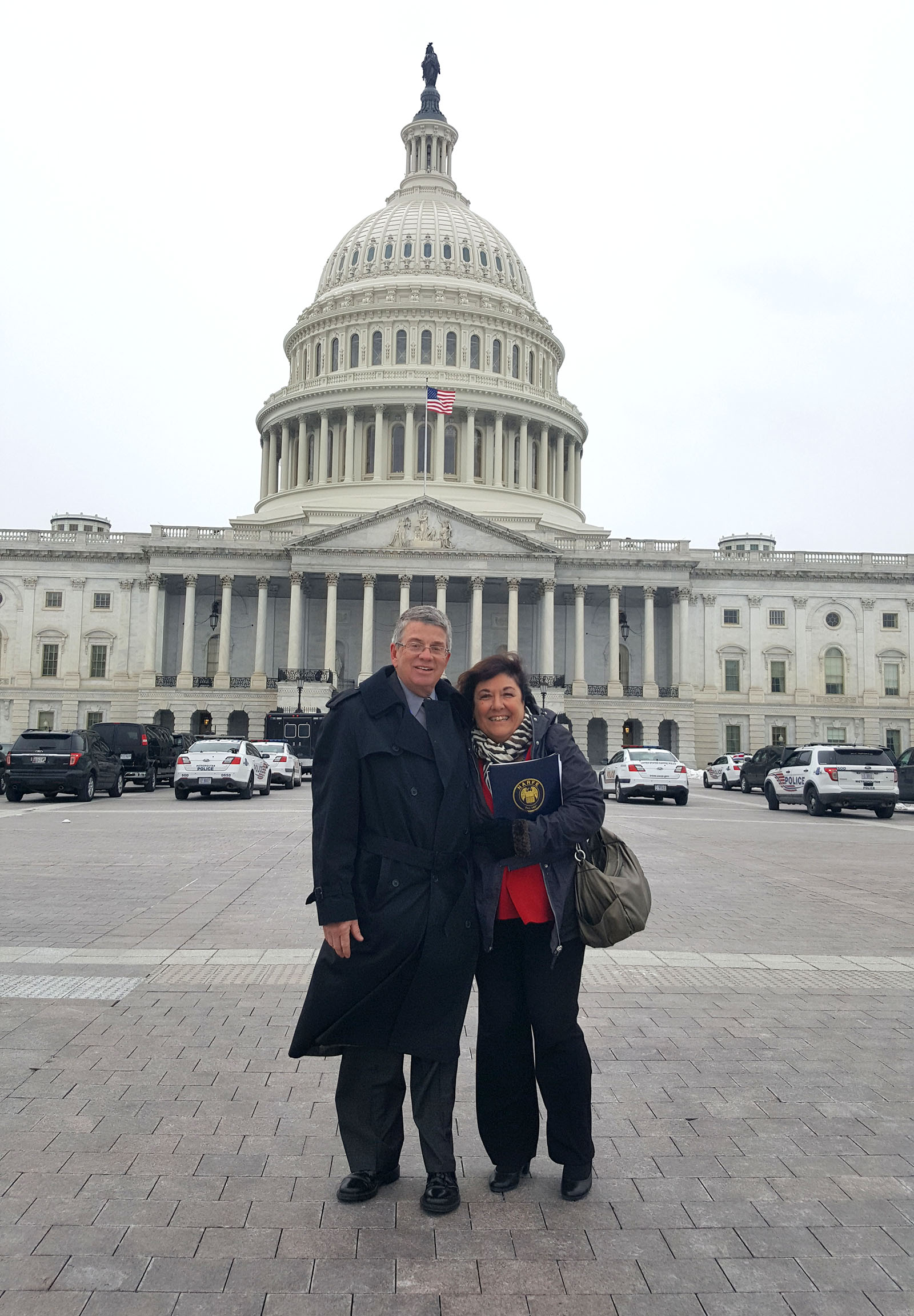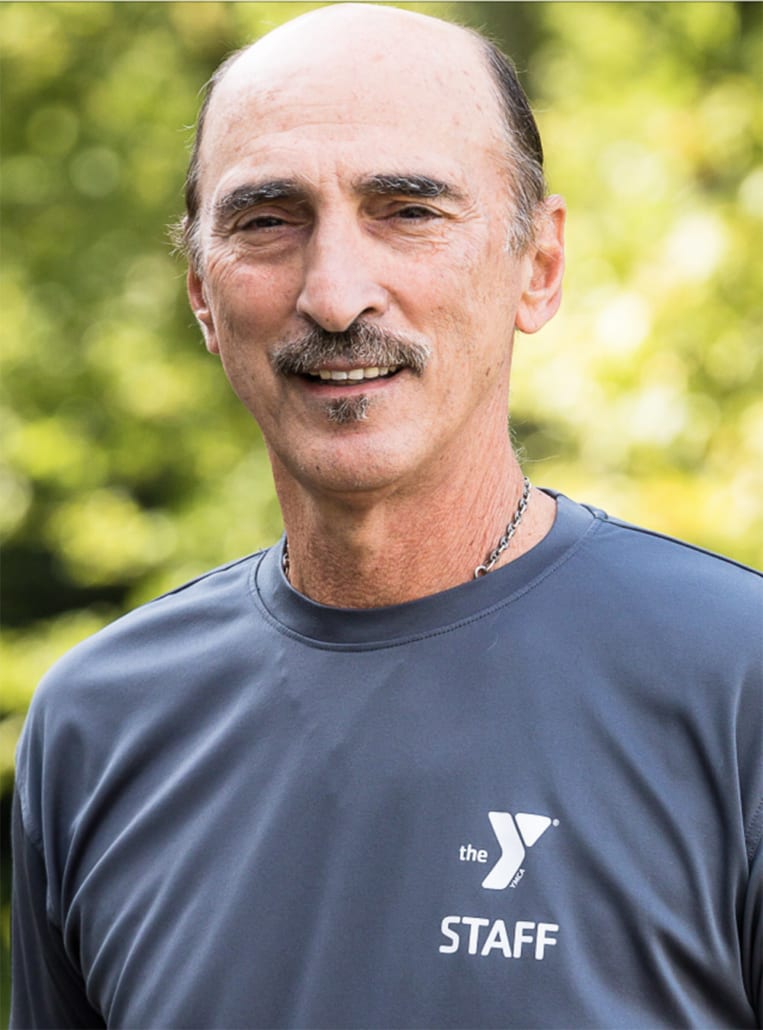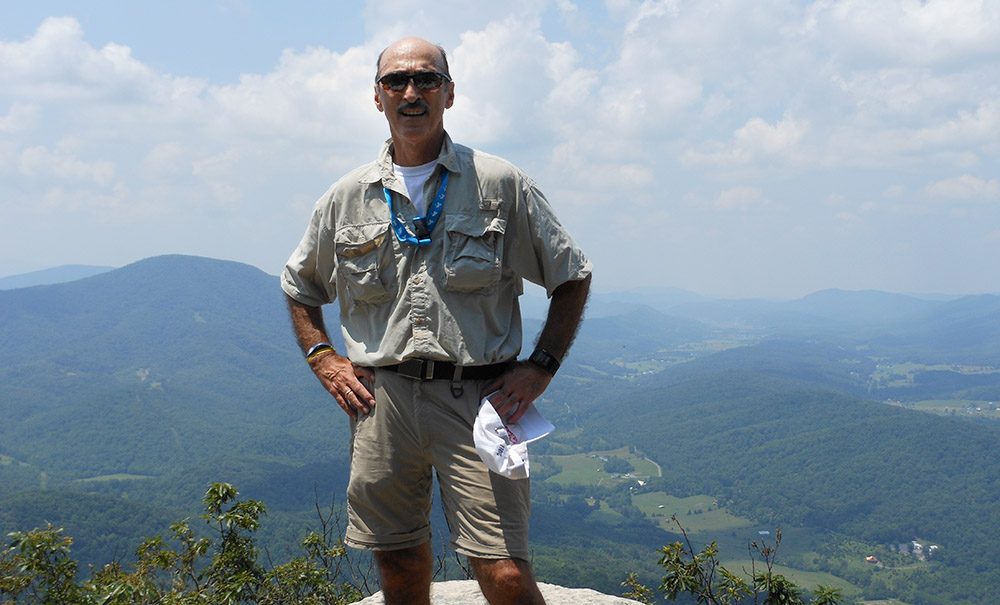I am Alan Thompson, a New Jersey native who moved with my wife, Vita, to Florida in 2015. I recently joined the Daytona area chapter of the United Ostomy Associations of America; however, I am not a new ostomate, I had ileostomy surgery when I was 30 years old in 1986. I suffered from ulcerative colitis for about four years prior to the surgery and thankfully I never needed serious follow-up medical attention. I view the ileostomy surgery as a positive event in my life that ultimately motivated me to have a successful career in Federal Law Enforcement.
My first symptoms of ulcerative colitis occurred in 1982, when I was a clerk for the Postal Service in Phillipsburg, NJ. The symptoms significantly worsened in 1984 resulting in hospital stays that included hyperalimentation. I was even initially quarantined at a rural New Jersey hospital. The local gastroenterologist did not have a handle on my illness, but thankfully my Mom shared with me an advertisement in Parade magazine that described ulcerative colitis (UC) which matched all my symptoms. I was given Prednisone and Azulfidine to manage the UC. At first the medications worked but ultimately the UC symptoms kept coming back at shorter and more intense intervals. By 1986, I realized that surgery was my only hope. We had two small children and I had nearly exhausted my sick leave with the Postal Service. Vita and my parents, Madeline and Jessie Thompson, were very supportive through this entire ordeal.

Alan Thompson with wife Vita on Capitol Hill in 2017.
I met with Dr. Robert Riether in Allentown, PA. We first tried ileoanal anastomosis surgery in May 1986 at Lehigh Valley Hospital. But by September my condition worsened, and it became clear that an ileostomy was needed. During this tumultuous time, Vita became pregnant with our third child. My surgery was performed on September 19, 1986. I am eternally thankful for Dr. Riether who unfortunately, passed away at a young age in 2006.
Overcoming UC motivated me to reach new heights with my career. I eventually became Superintendent of Postal Operations in Flemington, New Jersey. In 1989, I took a test to become a Postal Inspector, which is a federal law enforcement position that enforces criminal laws related to the U.S. Mail. I passed the test and started the arduous process to become an Inspector which included an intense assessment interview, background checks and a medical physical. At the time, the maximum age for starting a career as a Federal law enforcement agent was 35, which meant that I needed to complete this process and commence a three to four-month training regimen in Potomac, Maryland by March of 1991. Unfortunately, due to budget reasons the training classes were suspended and I “aged out”.
In 1992, the maximum age for commencing a Federal Law Enforcement changed to 37 years old. I now had up to March 1993 to get into a Postal Inspector class. I had another round of background checks and another physical. The local postal doctors knew I had an ileostomy but found me to be in good shape to become an Inspector. I made it! I was slated to start at the Inspection Service Training Academy three days before my 37th Birthday.
To celebrate my potential advancement and spend time together as a family before I left, Vita and I took the kids on a long ride to the Camden, NJ Aquarium on February 26th. We travelled through a snowstorm and came back to a message on the answering machine. A doctor in Washington DC rejected my application because of my ileostomy. I was devastated. I made several calls and wrote letters to the postal hierarchy with little or no response from them. I heard that other Federal Law Enforcement Agency doctors were consulted, and no one had been known to have previously entered Federal Law Enforcement training with an ostomy. Fortunately, I still had my job as a Postal Supervisor.
Over the next several months we fought and secured another physical from a gastroenterologist with Vita’s advocacy on my behalf, the doctor approved of my candidacy to become an Inspector. I believe strongly that letters that we sent to New Jersey Senators Bill Bradley and Frank Lautenberg helped my cause. Our daughter Jessica, at age 11, also wrote a letter to Congresswoman Marge Roukema urging her office to intercede. That letter really turned things around and ultimately, I was granted an exception to the Federal law enforcement maximum age requirement and I was accepted in the next training class that commenced in September of 1993.
Under the heading of things happen for a reason, I learned after my initial rejection that my Mom had been diagnosed with colon cancer in February of 1993. She and my Dad didn’t want to tell me because I was headed to the training academy. My Mom ended up with a colostomy which, with my Dad’s hands on help, she lived with until she passed away in 2006. She always said that my having an ileostomy gave her the courage to handle a colostomy. Obviously, Mom inspired me too!
I passed the training academy and commenced a career in New York City as a Postal Inspector. My assignment was mail theft investigations which required surveillances during all times of the day. Firearms and Defensive Tactics training and annual physicals were also requirements. I also participated in the initial Anthrax investigation and assisted the Secret Service on a protection detail for President Clinton. Having an ileostomy certainly presented some difficulties but it never interfered in my daily activities that included investigating and arresting thieves and testifying on behalf of my agency. Ultimately, I became a Team Leader in New Jersey. In 2006 I transferred over to the USPS Office of Inspector General and continued investigating and supervising mail theft investigations in New Jersey and New York.
At the time of my mandatory retirement in September 2013, I was an Assistant Special Agent in Charge for the last five and a half years of my career. All told I had 33 years with the Postal Service. At no point after I was accepted into the training class in September 1993 until my retirement 20 years later did anyone mention my ileostomy. I am sure that upper management must have known about it, but I let my work speak for the opportunity that was given to me in 1993.
One tip that I can offer is that I quickly recognized foods to avoid and realized early on that weight control was essential in managing my ileostomy. I currently work out at least six days a week riding a bike and doing some weight training. I recently took up golf with low expectations and I love meeting those low expectations. Now as a retiree in Florida, I am grateful that I did not accept the rejection and instead pushed and advocated for the opportunity to demonstrate that my ostomy would not interfere with a career in law enforcement.
 I want to tell my story concerning my ileostomy in order for people to understand how it is living with one and how a person can live a normal life and more.
I want to tell my story concerning my ileostomy in order for people to understand how it is living with one and how a person can live a normal life and more.



